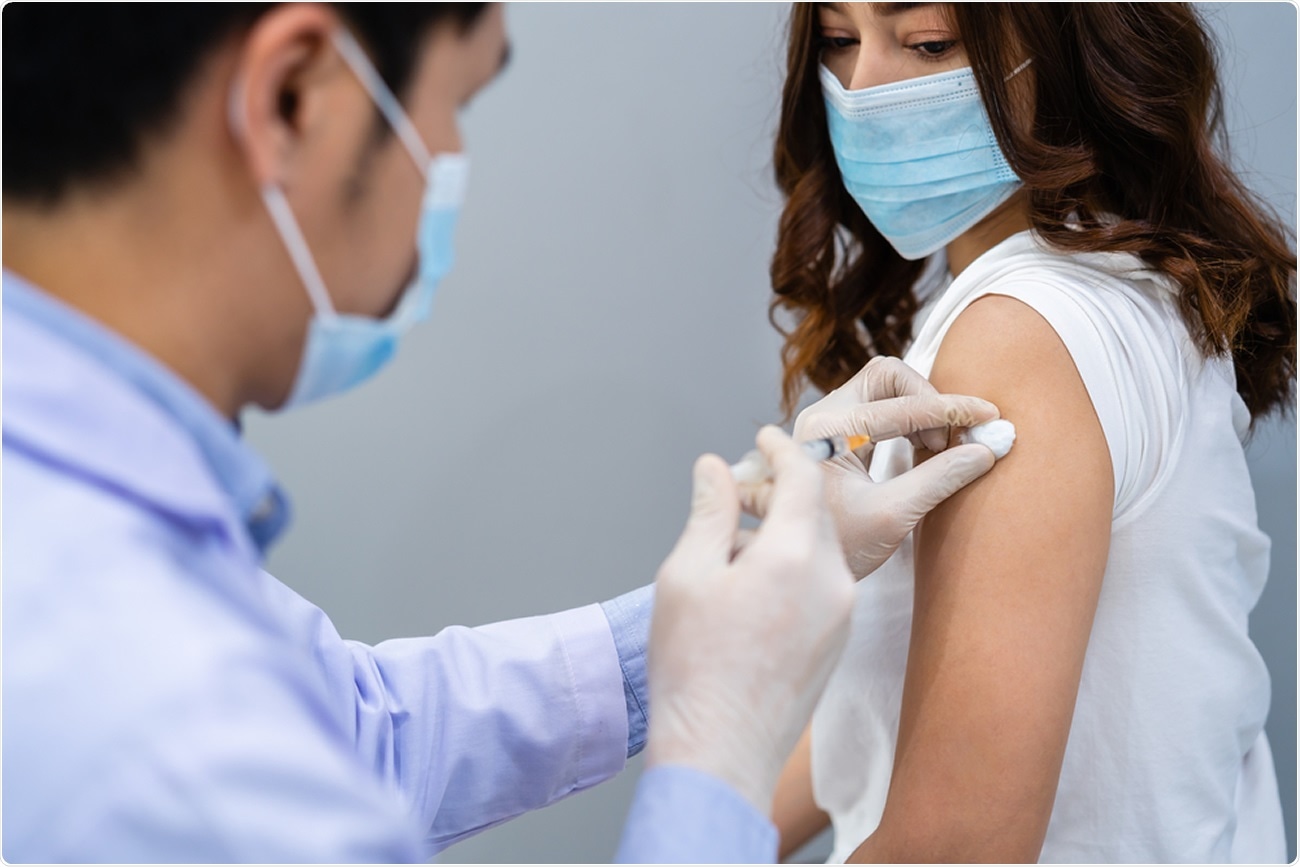Vaccination efforts against the severe acute respiratory syndrome coronavirus 2 (SARS-CoV-2), the virus behind the coronavirus disease (COVID-19) pandemic, are well underway in many countries. Over 2 billion vaccines have been administered to date, and campaigns continue to encourage more people to get vaccinated.
A major issue present today is the limited availability of vaccine doses for everybody. Vaccines are usually given according to their availability, preventing people from making an informed choice.
Phase 1/2 clinical trials have been initiated by the National Institutes of Health by which adult volunteers fully vaccinated against COVID-19 will receive booster doses of multiple COVID-19 vaccines to examine safety and immunogenicity in mixed-boost regimens.
This trial will recruit 150 people who have been fully vaccinated or have received two doses of the COVID-19 vaccine under the guidance of Baylor College of Medicine and the University of Maryland researchers.
The trial includes the vaccines that received an emergency use authorization (EUA) in the United States - Moderna COVID-19 mRNA-1273 vaccine, the Johnson & Johnson/Janssen COVID-19 vaccine, or the Pfizer-BioNTech COVID-19 BNT162b2 vaccine.

Image Credit: BaLL LunLa / Shutterstock
The clinical trial
In the phase 1/2 trial, there will be two groups, the first one with 150 people more than 18 years old and who received a full dose of the three mentioned COVID-19 vaccines, and the second group will contain approximately 250 participants who have not received a COVID-19 vaccine and had no previous history of SARS-CoV-2 infection.
The first cohort group will be offered enrollment to the study at about 12 to 20 weeks after receiving the last dose of their COVID-19 vaccine. The participants will receive an injection of the designated booster vaccine, and they will be followed through 12 months after vaccination.
The participants will be assigned to receive the COVID-19 vaccine under EUA dosing. The pools of participants will be assigned a novel homologous or heterologous variant boost or heterologous platform boost at about 12 weeks after receiving the EUA dosing.
Also, a telephone interview will be conducted one week after each primary EUA vaccination.
Scientists will evaluate the safety of the vaccine and any side effects following vaccination. The participants will be asked to provide blood samples in order to assess their immune responses against the currently spreading SARS-CoV-2 variant.
If the participant develops COVID-19, the team will perform genetic sequence analyses on the participant samples to determine which SARS-CoV-2 variant caused the infection. Follow-ups with patients will happen 14 days after completing EUA vaccinations and on days 14 and 28 days after the booster dose. They will be followed through three, six, and 12 months.
“In-person follow-up visits will occur on 14 days following completion of EUA vaccinations and on days 14, and 28 days after the booster dose, as well as 3, 6, and 12 months post the booster vaccination
“New groups may be added to Cohort 1 or 2 dependent upon manufacture of variant lineage spike protein-based vaccine constructs or vaccines newly awarded EUA,” the team noted.
“The primary objectives of this study are to evaluate the safety and reactogenicity of delayed heterologous or homologous vaccine doses after EUA dosed vaccines, and to evaluate the breadth of the humoral immune responses of heterologous and homologous delayed boost regimens following EUA dosing.”
Determining the efficacy of random booster shots against SARS-CoV-2 can help reduce the risk of a vaccine shortage. A successful trial could facilitate the scheduling of booster vaccines by government agencies.